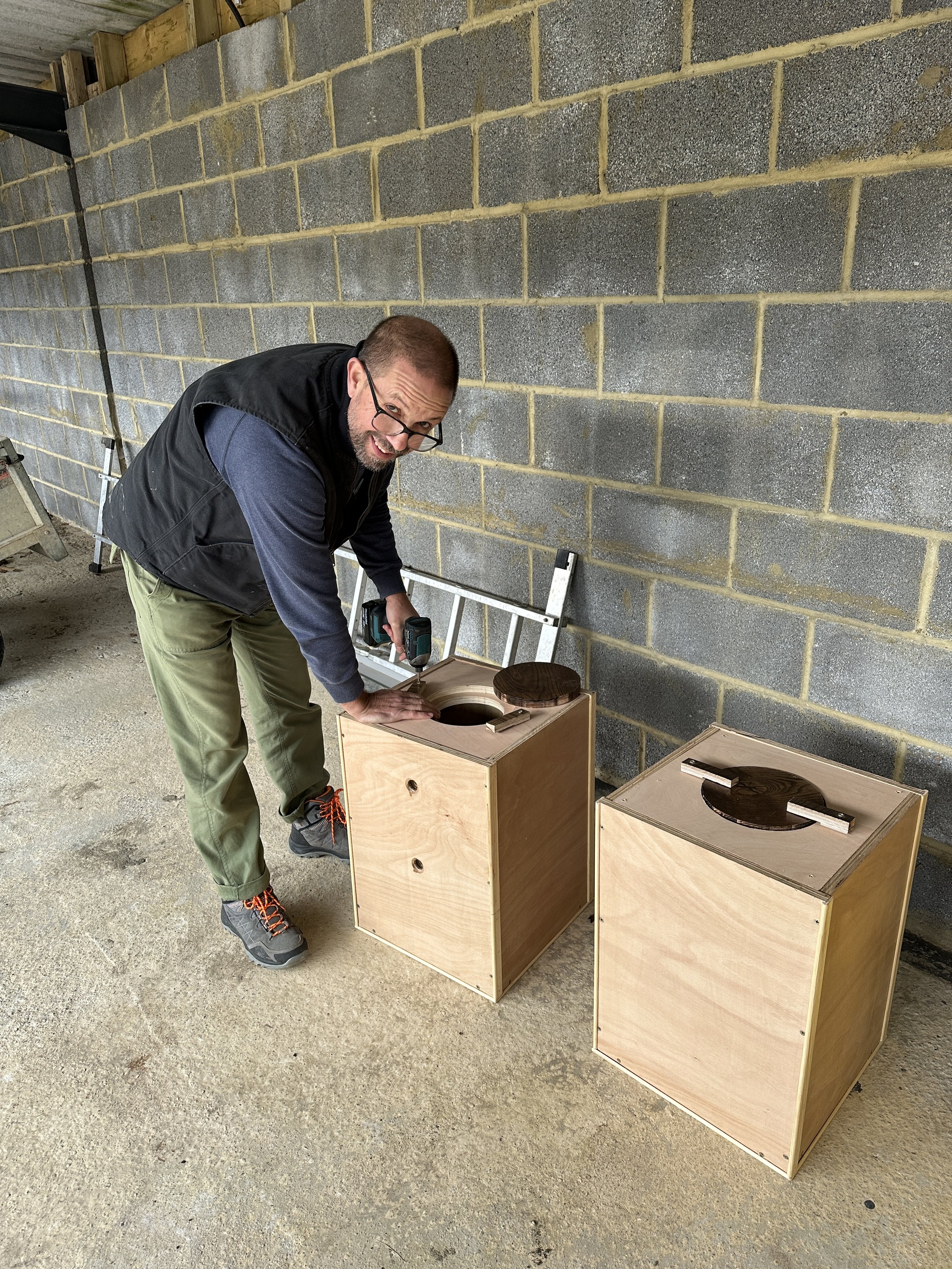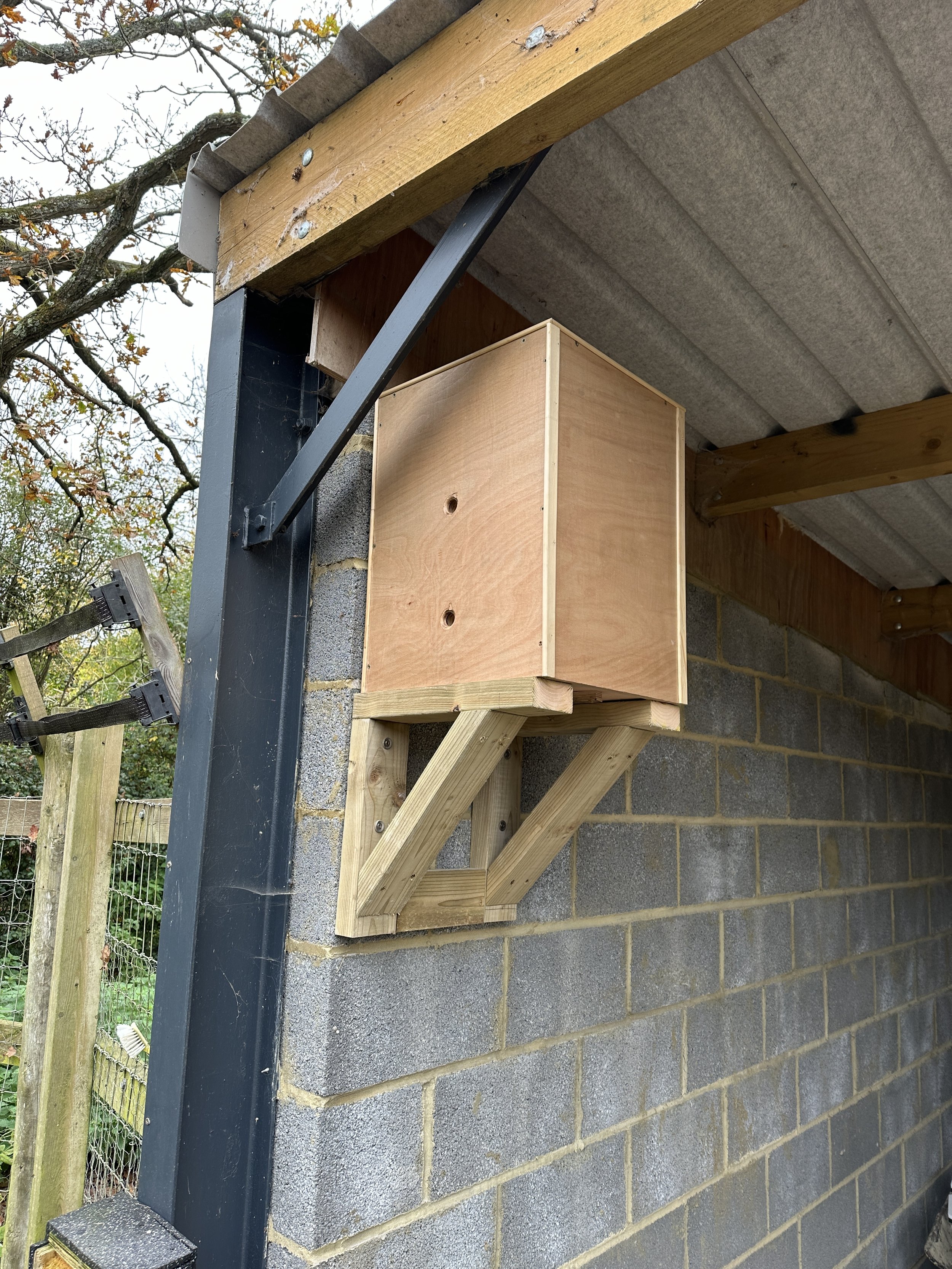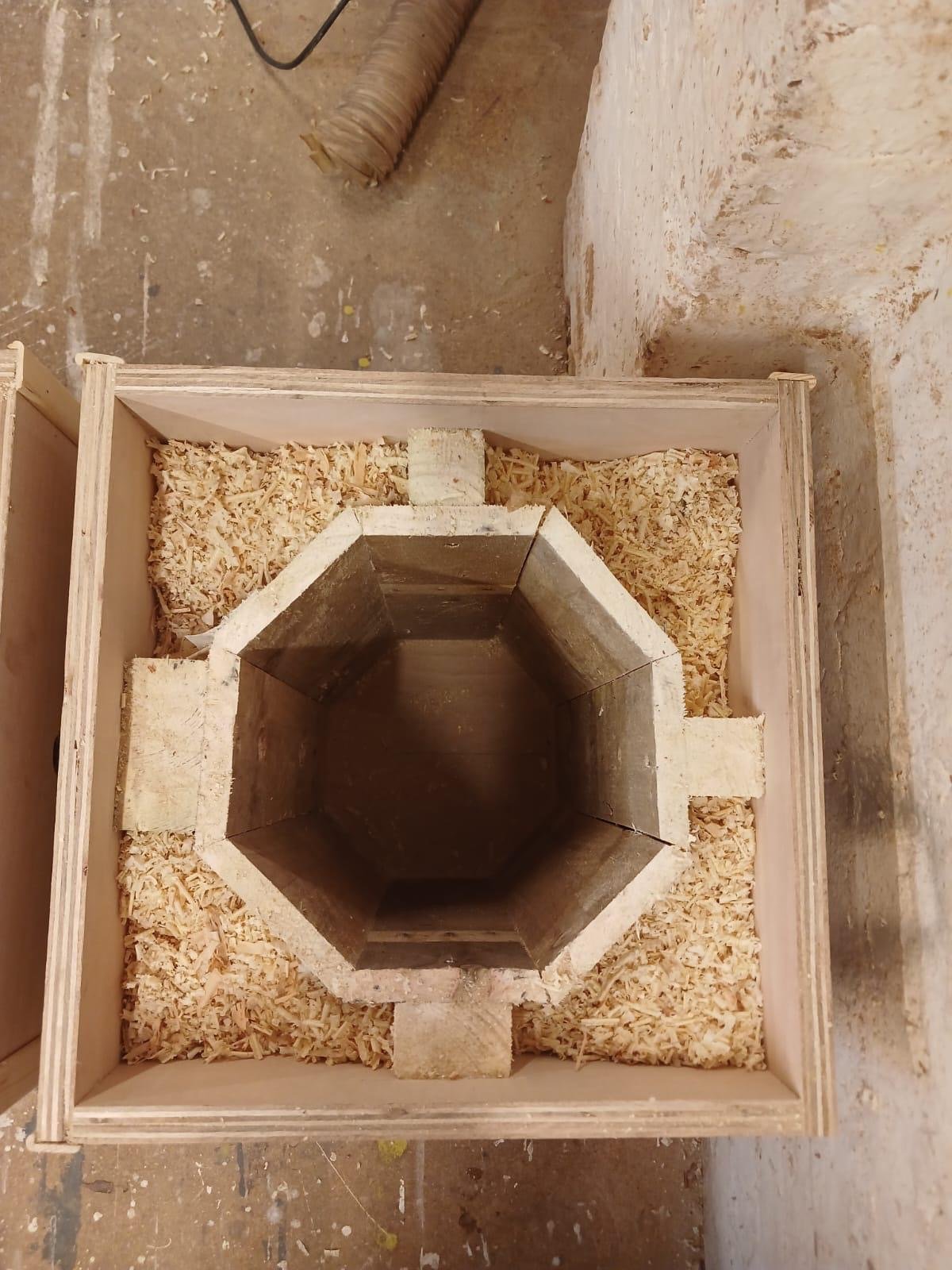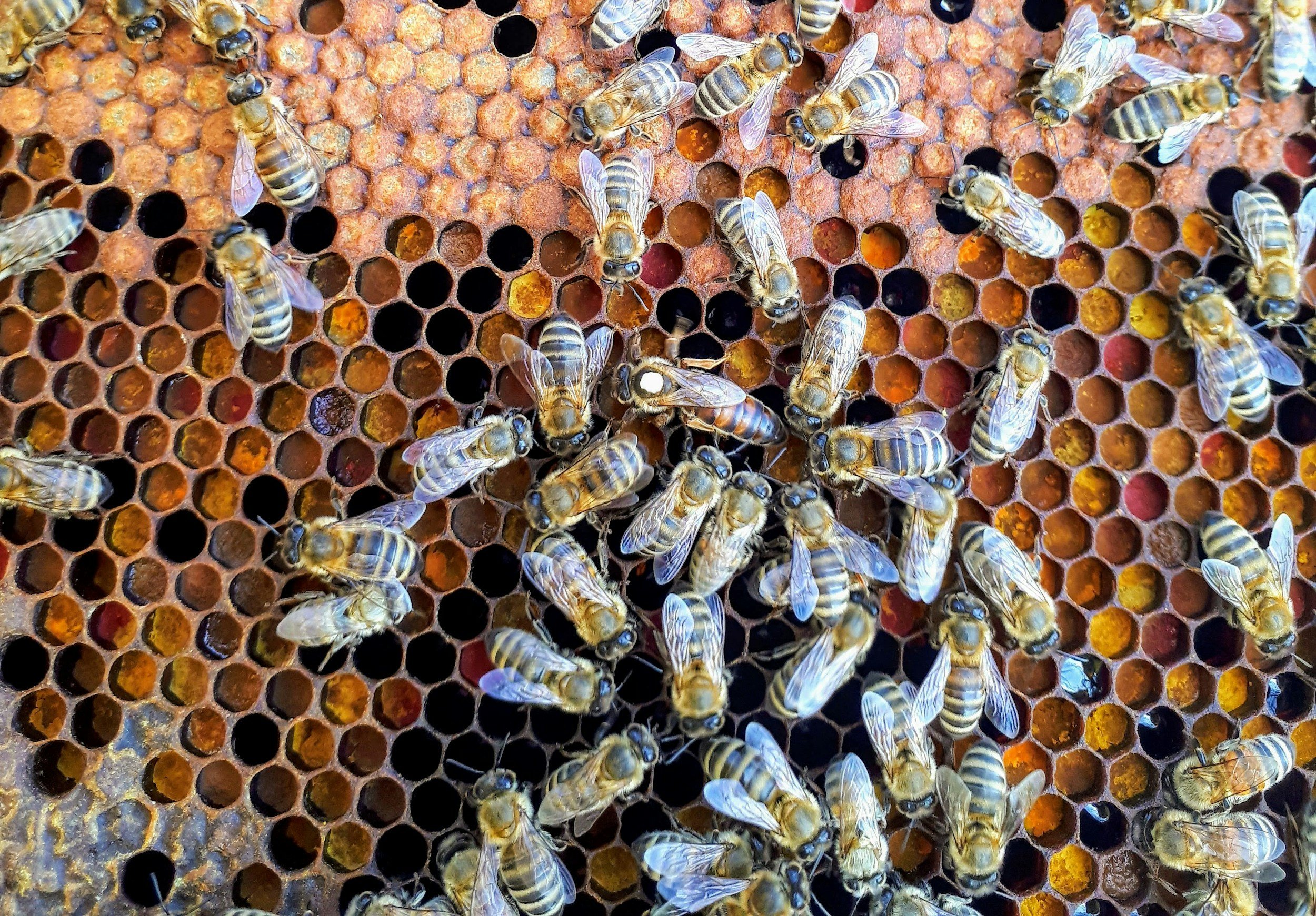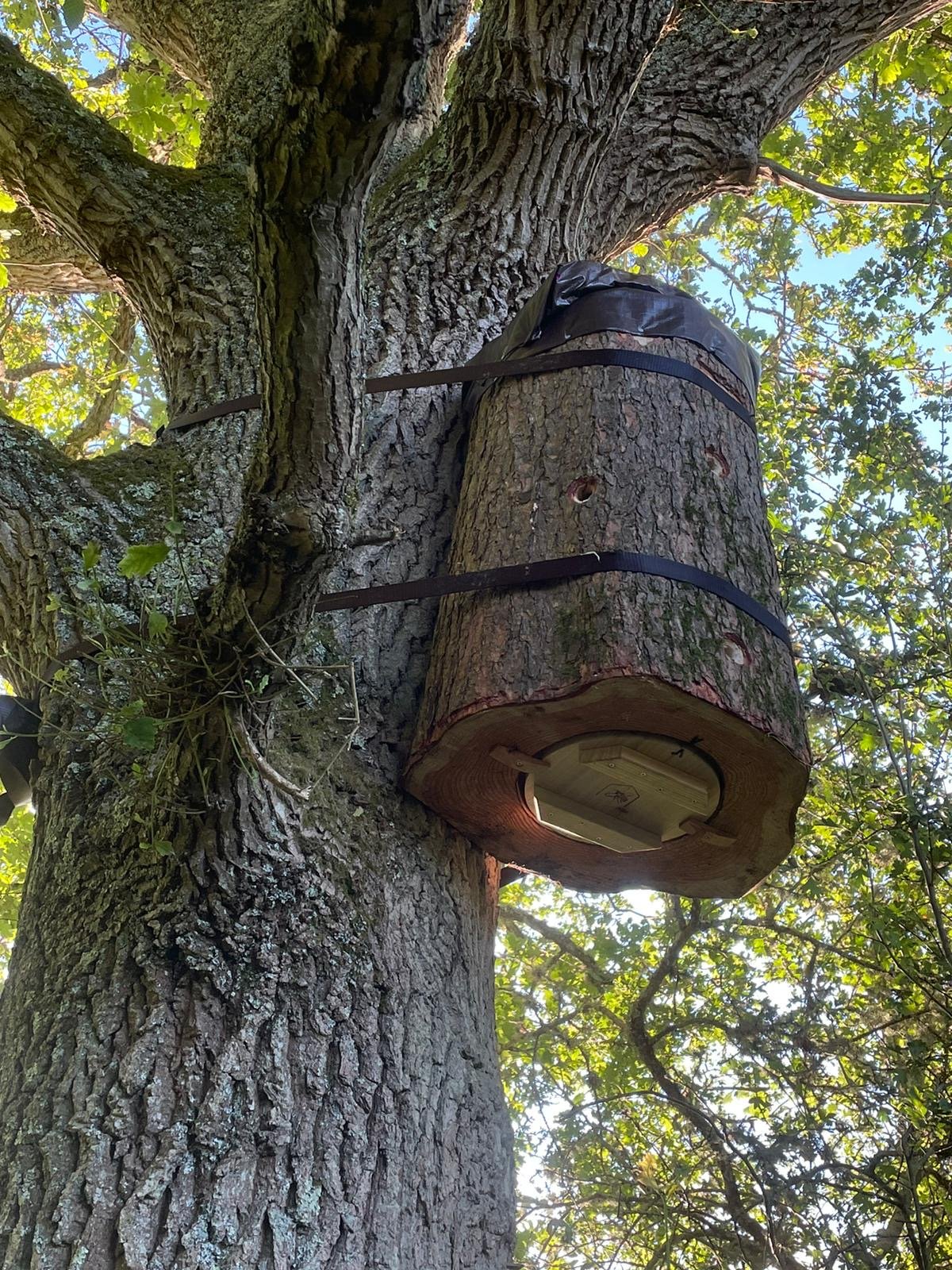Helping Wild Honey Bees
Most honey bees these days live in commercial hives where their natural food (honey) is harvested for human consumption, and their environment is managed in such a way that it does not lend itself to creating healthy colonies. Furthermore, the long distance transportation of bees (which is commonplace by commercial bee-keepers) to pollinate crops when there is not enough sustainable forage locally for natural pollination to occur, causes immense stress to bees. In these circumstances, honey bees are transported in their hives en masse, to pollinate crops for a very short period before being returned to the apiary. Many bees die in transit, and disease is frequently spread from one hive to another.
Honey bees in the wild face many challenges too, including:
a huge decline in natural habitat
the ongoing use of herbicides and pesticides by farmers
chemicals such as those found in household weedkillers (Round Up, Gallup etc.) that contain glyphosate are a killer for bees
natural predators
parasites and disease
At our rewilding site in Alfold, Surrey, we have recently installed 5 natural-style bee hives, which provide wild honey bees with secure, insulated hives, mimicking their natural choice of hive which tends to be a hollowed out, mature tree. Natural habitats have declined in recent years as ancient trees are often cleared from woodlands, and housing developments are taking up more and more of our countryside, and it has never been as important as it is now, to help wild honey bees to thrive. Without these critical pollinators, there will be no food.
In 2024, we received a grant through The Community Foundation for Surrey, from Surrey Hills Trust, which enabled us to provide our wild bee hives, and we have seen them immediately occupied by honey bees. You can see from our blog post about the Freedom Log Hives, and the Eco Hives that we have on site and read about our journey.
We are delighted with our progress so far, and the hives we have installed are absolutely perfect, however they do require specialist help to install, and the unit cost means that they are out of reach for many people, but if you feel they would be of interest, please do check out their websites and contact them directly.
At Charity Buddy, our goal is to help honeybees throughout the UK, and we want to provide more affordable hives that are easy to install. With that in mind, one of our recent workshop attendees, Jason, has designed a hive that is crafted from reclaimed materials, and is more affordable and lighter, making it possible for almost all of us to help our honey bees!
We have installed one of our “affordable hives” at our HQ, and we are delighted to see that it has been occupied by a swarm, and pollen is being taken in.
Recently (May 2025), we also installed 2 further hives off-site, and we were lucky enough to see the swarm arrive the very next day! Check our blog post to see more.
You can also see all of our blog posts here that showcase our events in more detail.
Our Affordable Tree Hive
Natural Style Bee-centric Beekeeping
After attending a course with Simon Kellam, a Trustee of The Natural Beekeeping Trust, it was clear to us that existing beekeeping practices are not always beneficial for the welfare of our bees. The homes provided for them are usually found near the ground, in thin walled square boxes that do not consider the biological needs of the bee. Their brood nest is constantly disrupted, and whilst we enjoy their honey, they are given sugar syrup by us to feed them.
Is that really the best way to treat our most important pollinators? We don’t think so.
If you would like to learn more about bee-centric bee-keeping, where you can take some honey, but using methods that are much kinder to bees, then we would love to hear from you.
Our workshop covering natural-style bee keeping will provide you with all the information you need to make a positive change for bees.
We also are keen to create a community of like-minded Natural Beekeepers. If you’d like to join the WhatsApp group, please use this invite:
2025 Workshops:
Training Workshop 1 - Natural style bee keeping (all levels) One day workshop 20th July 2025. See details here.
Training Workshop 2 - Practical workshop to make a bee hive for wild honeybees (the ability to use a drill and screwdriver will be needed) One day workshop. 12th September 2025 See details here This workshop is open to observers and to those wishing to make a hive.
Training workshop 3 - Half day - Understanding the needs of wild honeybees, and a tour of our hives (no bee-keeping experience needed) 19th July 2025 See details here.
Training workshop 4 - Half day - (For young people aged 18-30 with our partners, Youngwilders) Understanding the needs of wild honeybees, and a tour of our hives (no bee-keeping experience needed) 23rd August 2025
If you’d like to register your interest in any of our workshops for 2026 please Contact us.
New Training Workshops
We’d like to share these interesting and informative articles with you:
Varroa, disrupted, by Guy Thompson
Rethinking the box, by Guy Thompson
Warré Art (What is the Warré Hive?), by Guy Thompson
Old Friends, by Guy Thompson
Further Reading
FAQs
-
No, you don’t! All you need is a love of nature. The bees that will occupy your hive will be living freely, and as you will not be controlling the queen or taking their honey, they will have enough food to survive without human intervention.
-
You don’t need any experience to attend our workshop, but you will need to learn the basics of bee-keeping, which can be arranged.
-
Honey bees will need to find food which comes from pollen in trees and plants, and they will search for food within 1-3 miles from the hive.
-
The hive can be installed in a mature tree (above head height) by using straps, or put on a stand if it is being installed in an open barn or similar.
The hive weighs about 20 kgs.
-
Wild honey bees will swarm from Spring to Summer (usually in good weather) so if you have your hive ready for them, there is a strong chance that it will be occupied fairly quickly.
Scout bees will search for new hives during this time of year, and once they have found a new home, they’ll bring their queen, and the new colony will move in.
Your hive will need to be lightly rubbed with some propolis (a natural bee product) and some lemongrass oil which helps the bees to find it.
